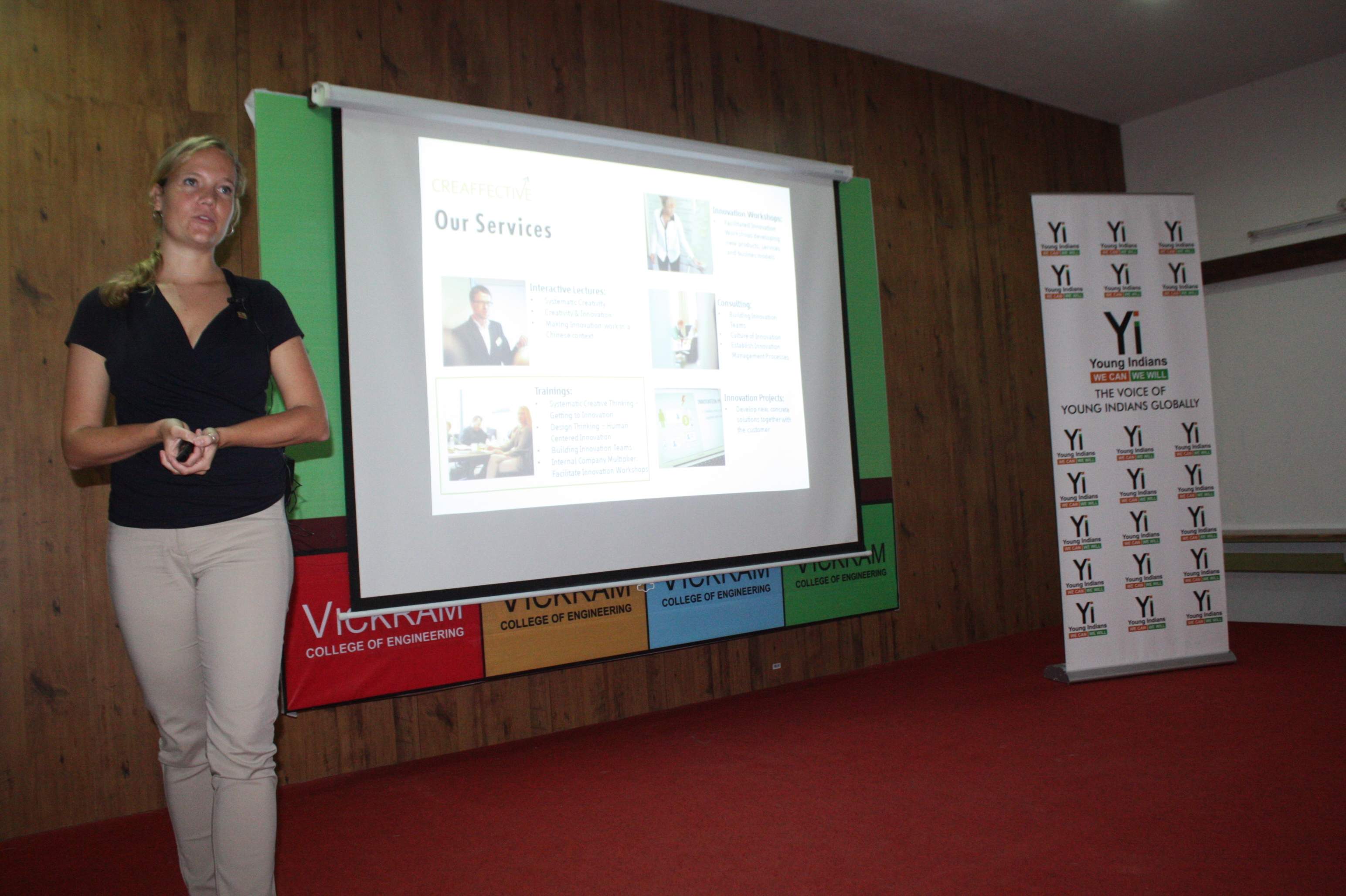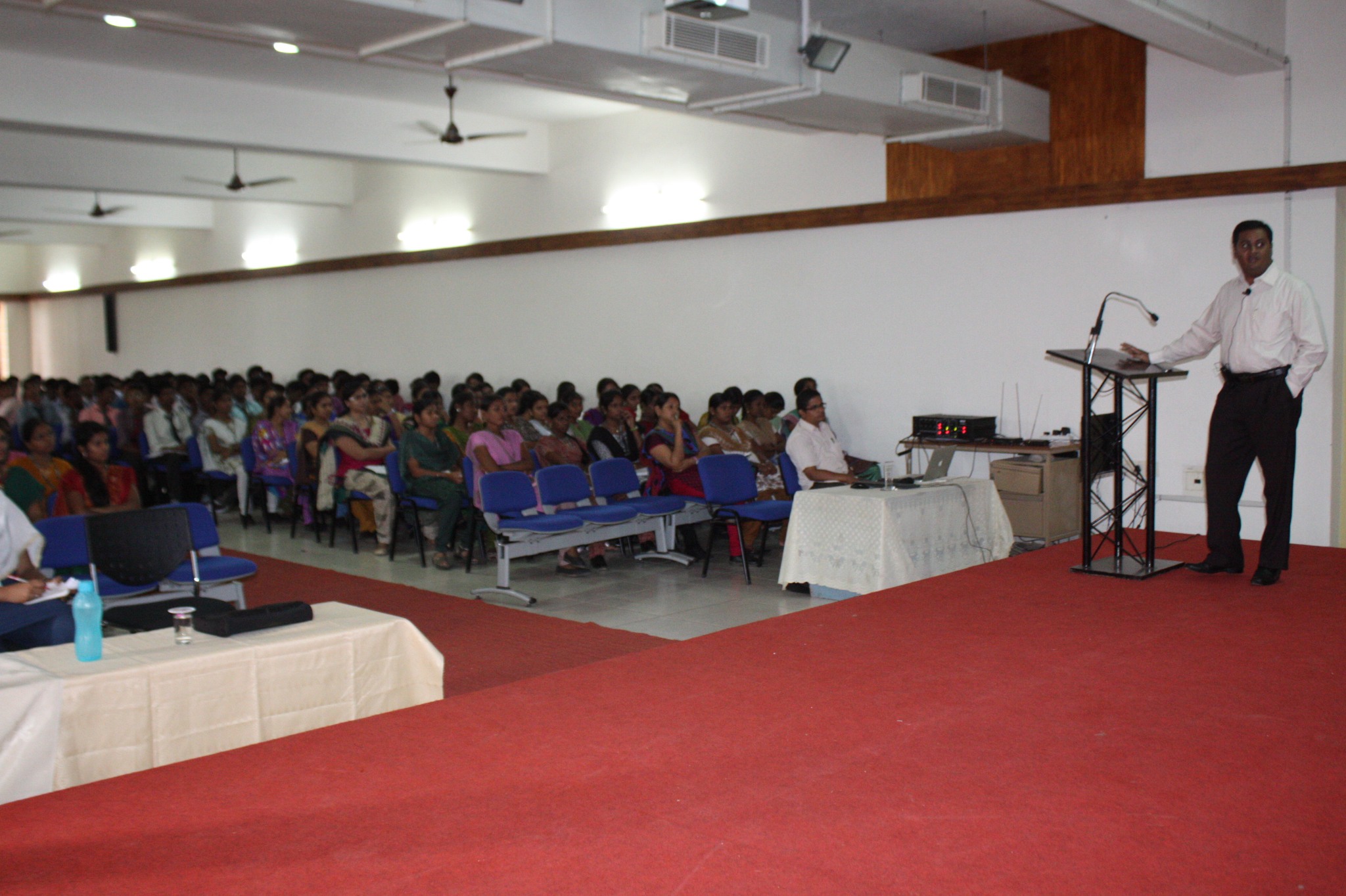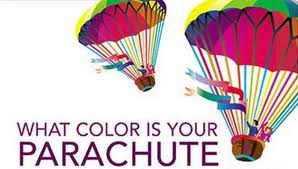- Written by sherlley
- Hits: 2466
Competency Based Interview Training
Competency Based Interview Training
Competencies are the measurable or observable knowledge, skills, abilities, and behaviors (KSABs) critical to successful job performance.
The placement season is reckoning us to grab the opportunities with prepared mind. Nowadays, many companies conduct behavioural interviewing to cull out the apt candidates for a specific job. They have a predetermined set of skill sets required for a particular position. The skill sets may include decision making and problem solving, leadership, motivation, interpersonal skills, communication, planning and organization, team building, critical thinking and the ability to influence others.
Just as the company spends time and money to identify the correct fit, the job seekers must also do their homework. He should do the groundwork by pondering on
** What are the necessary skills to do this job?
**What makes the candidate successful?
** What would make the candidate unsuccessful candidate?
** Why have people left the job previously?
** What is the most difficult part of this job?
Once you have landed in the interview, remember to be detailed and specific. Be prepared with three stories that illustrate your past performance. The interviewer will be working on the premise that the “past performance under similar setting is the best predictor of future performance.”
The best way is to use the three step STAR process.
►Situation or Task
►Action
►Result or outcome
Frame your accomplishments and experience positively. Limit tangential ramblings. Rephrase the question asked to clarify and answer appropriately. Practice your behavioural stories using real life examples. By practice, you will be able to recall with confidence your past accomplishments. Dig your term paper, project report and similar experience and think hard of the difficulties encountered and the steps taken to successfully complete it.
Following is a list of typical behavior-based questions, courtesy of Lombardi and The Ultimate Job Search Kit by Damir Joseph Stimac. Competencies sought by the interviewer are listed in parentheses:
1. Describe a situation in which you had to use reference materials to write a research paper. What was the topic? What journals did you read? (research/written communication)
2. Give me a specific example of a time when a co-worker or classmate criticized your work in front of others. How did you respond? How has that event shaped the way you communicate with others? (oral communication. )
3. Give me a specific example of a time when you sold your supervisor or professor on an idea or concept. How did you proceed? What was the result? (assertiveness)
4. Describe the system you use for keeping track of multiple projects. How do you track your progress so that you can meet deadlines? How do you stay focused? (commitment to task)
5. Tell me about a time when you came up with an innovative solution to a challenge your company or class was facing. What was the challenge? What role did others play? (creativity and imagination)
6. Describe a specific problem you solved for your employer or professor. How did you approach the problem? What role did others play? What was the outcome? (decision making)
7. Describe a time when you got co-workers or classmates who dislike each other to work together. How did you accomplish this? What was the outcome? (teamwork)
8. Tell me about a time when you failed to meet a deadline. What things did you fail to do? What were the repercussions? What did you learn? (time management)
9. Describe a time when you put your needs aside to help a co-worker or classmate understand a task. How did you assist them? What was the result? (flexibility)
10. Describe two specific goals you set for yourself and how successful you were in meeting them. What factors led to your success in meeting your goals? (goal setting)
Do the ground work and remember that "chance favors a prepared mind".



